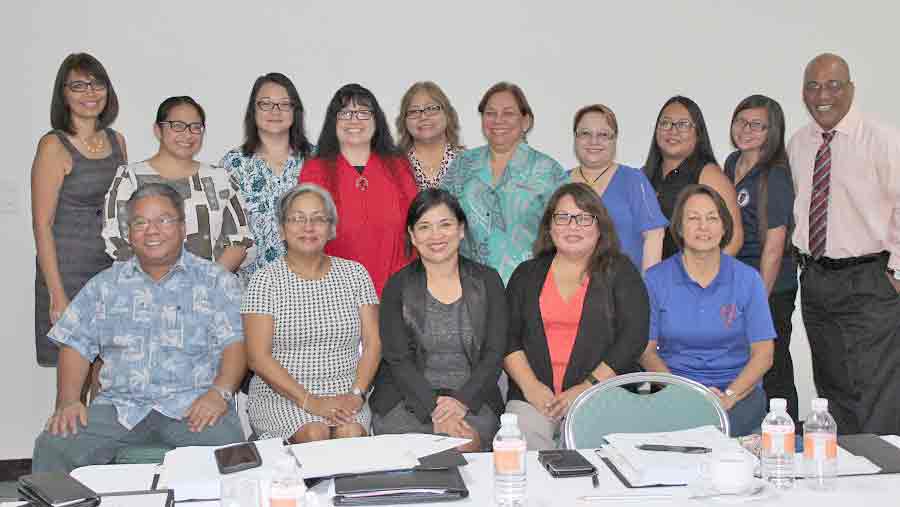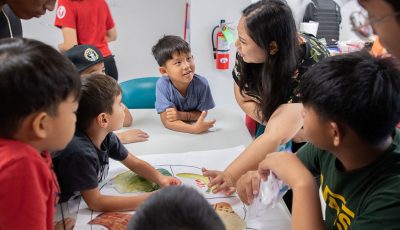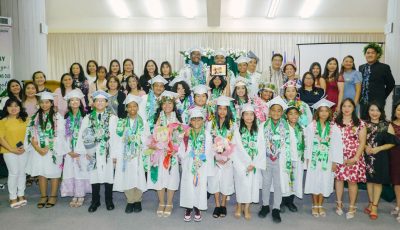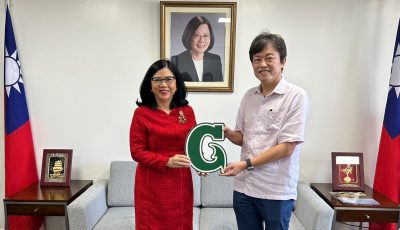Labor convenes CNMI Workforce Development board

Members of the newly reorganized CNMI Workforce Development board meet to discuss Workforce Innovation and Opportunity Act plans. Seated, from left, Rep. Francisco Aguon; Labor Secretary Vicky Benavente; Velma Palacios, IT&E engineering and plant technical services manager; Polly DLG Masga, Marianas Medical Center general manager; and Annie G. Hayes, Herman’s Modern Bakery assistant general manager. Standing, from left: Bertha C. Leon Guerrero, Imperial Pacific International vice president for human resources; Nicole Babauta Small Business Development Center director; Arlene Yamagata, Office of Vocational Rehabilitation director; Dr. Carmen Fernandez, president of the Northern Marianas College; Esther Muña, chief executive officer of the Commonwealth Health Center; Josephine Mesta, CNMI Workforce Development board chair and director of human resources at Hyatt Regency Saipan; and Lorraine C. Maui, NMC-ABE state director. (Contributed Photo)
Core programs and industry sectors formalized their committees toward aligning and improving workforce programs and economic development for the Commonwealth at the first general membership meeting of the newly organized CNMI Workforce Development board on Jan. 18, 2018.
“We convened this year with key industry sectors in hospitality, small business, healthcare, gaming, telecommunications, and education,” said Labor Secretary Vicky Benavente. “Our initial discussions include the unified state plan for the Commonwealth and modifications to our workforce system and needs. The meeting was a success, and I thank everyone for their participation and commitment to ensuring we meet the mandates of [the Workforce Innovation and Opportunity Act].”
The CNMI Workforce Development board is a key component to development, integration, and empowerment through the Workforce Innovation and Opportunity Act. Under the U.S. Department of Labor, this law is designed to assist job seekers and make employment more accessible through education, training and support services.
WIOA replaced the Workforce Investment Act of 1998 and includes several reforms that require states to align workforce development so that core programs and skills meet employers’ needs.
The reforms also ensure that employment and training is evidence-based and data-driven; fosters regional collaboration; contributes to economic growth and business expansion; provides access to high quality training; improves workforce services for all job seekers, including those with disabilities; prepares youth for successful employment; and increases the performance of the Job Corps program.
Through USDOL, the WIOA program emphasizes investment in skill development, including employment and training services for adults, dislocated workers, and youth, assistance for adult education, increased literacy programs, and enhanced vocational rehabilitation, said federal programs manager Frances A. Torres.
Benavente emphasized that representation and input of core industries are critical to the economy and is needed to address the Commonwealth’s workforce needs.
“The board’s role includes identifying barriers to workforce needs and better coordinating to avoid duplication of activities in workforce development. The WIOA puts emphasis on a one-stop delivery system through outreach and market analysis. We’ve brought our key industries to the table and we will convene again later this month after our committees outline existing labor demands and needs. We intend to submit state plan modifications to move the CNMI towards workforce transformations outlined in WIOA. I look forward to working with the board to improve training and create a unified state plan that is truly reflective of our current and future labor needs,” Benavente said.
Gov. Ralph DLG Torres said that innovation and integration will continue to play a role in U.S. workforce development.
“The CNMI Workforce Development board through WIOA is one way we are gauging our existing resources to build our workforce, and it will continue to be a critical priority for us moving forward. Bridging the gap between job seekers and employers is ongoing and complementary access to labor is needed.
“What matters most to me is the need to focus our efforts toward building our U.S. workforce and addressing shortages now and in the long run. At the end of the day, workforce innovation and opportunities are sustained by industry collaboration and will go a long way in addressing the strengths and weaknesses of workforce development activities, capacity, and policies.
“I thank the new members of our board for their collaboration and commitment to tackling these concerns,” Torres said.
The following committees were established:
Policy committee, chaired by Benavente and vice chairs Sen. Sixto and Rep. Francisco Aguon;
Economic and workforce committee, chaired by Nicole Babauta, Small Business Development Center director, and vice chair Bertha Leon Guerrero, Imperial Pacific International vice president for human resources;
Education committee, chaired by Dr. Carmen Fernandez, president of the Northern Marianas College, with vice chair Esther Muna, chief executive officer of the Commonwealth Health Center; and
State programs committee, chaired by Arlene Yamagata, Office of Vocational Rehabilitation director, and vice chair Lorraine T. Maui, NMC-ABE state director.
The overall CNMI Workforce Development board chair is Josephine Mesta, director of human resources at Hyatt Regency Saipan. She is joined by vice chair Annie G. Hayes, Herman’s Modern Bakery assistant general manager; secretary/treasurer Polly DLG Masga, Marianas Medical Center, and Velma Palacios, IT&E engineering and plant technical services manager. (PR)



























